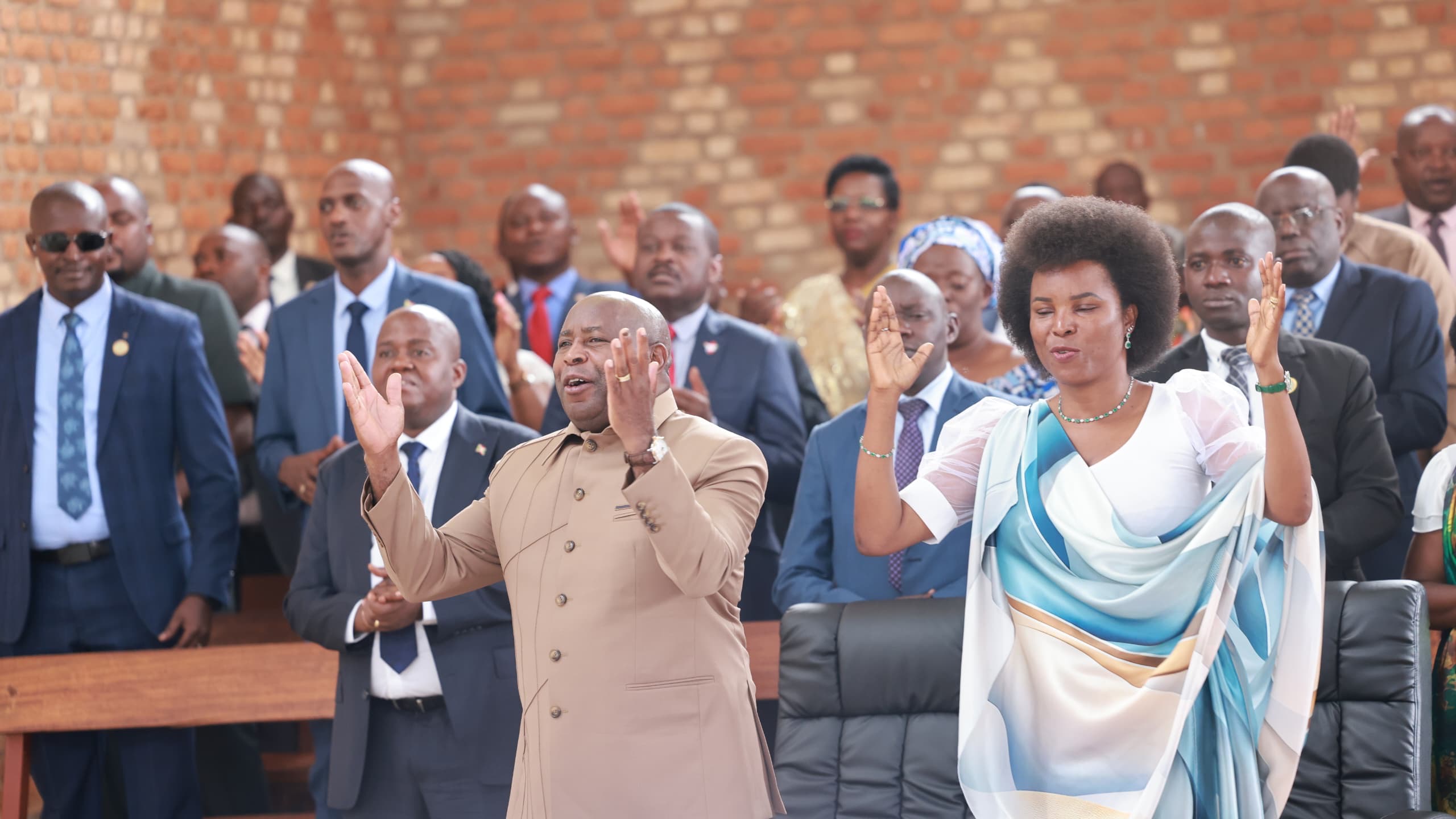Five Years at the Helm: President Ndayishimiye Celebrates His « Victory Over the Opposition » During a Crusade in Gitega

SOS Médias Burundi
Gitega, June 23, 2025 — Five years after coming to power, President Évariste Ndayishimiye marked his term anniversary in Gitega with a religious crusade laced with political messages. Pleased with his achievements, he claimed a symbolic victory over the opposition. But amid an economic crisis and growing public disengagement, his triumphalist speeches struggle to conceal the underlying national malaise.
Five years after his inauguration as head of state, Burundian President Évariste Ndayishimiye commemorated his rise to power with a prayer crusade on Thursday, June 20, at Ingoma Stadium in Gitega, the country’s political capital. The ceremony, blending religious and political tones, was held in the midst of multiple national crises, where the enthusiasm of the ruling elite clashed with a modest popular turnout.
A Full Day of Worship and Political Messaging
The day began with an inaugural mass at Saint François d’Assise Parish in Magarama, celebrated by Archbishop Bonaventure Nahimana of Gitega. The Archbishop described the event as a time of thanksgiving for the « progress achieved » in the country, while also calling for unity, forgiveness, and national reconciliation.
« Every human endeavor has its flaws, » he reminded in his homily, urging the acknowledgment of governance failures and the hope for a better future.
« Adonijah, » « Solomon, » and the Victory Over Rival Ambitions
On the stage at Ingoma Stadium, the Head of State reflected extensively on his five years in office, comparing them to the first seven years of King David’s biblical reign, marked by trials and resistance.
Without naming names, he alluded to political opponents who, according to him, tried to challenge his authority starting in 2020.
« Someone once called me Adonijah, the one who self-proclaimed himself; another, thinking he was Solomon, believed he could overthrow me — but all that was nothing but vain ambition, » he declared, visibly pleased with having « defeated » the opposition.
He also praised the CNDD-FDD’s longevity in power since 2005, affirming that the Burundian people — Hutu, Tutsi, and Twa — reaffirmed their support during the June 5, 2025 elections. The president denounced the political divisions inherited from colonization and the dual leadership that characterized past regimes.
A Deafening Silence on Economic Realities
Despite the country’s deep economic crisis, President Ndayishimiye made no mention of the daily struggles facing Burundians. Fuel shortages, foreign currency scarcity, and the lack of basic commodities like sugar and beverages were glaring omissions from his speech.
Institutional Attendance, But Limited Popular Support
Despite the ceremony’s formal tone, the crusade failed to attract large crowds. Ingoma Stadium showed only a modest turnout, mainly composed of government officials and ruling party members. The absence of grassroots citizens raises questions about the population’s true support for the current leadership.
Five Key Moments of Ndayishimiye’s Presidency (2020–2025)
- Urgent Inauguration (June 2020)
Ndayishimiye was quickly installed as president following the unexpected death of Pierre Nkurunziza, just days after the elections. - Crusade Against Corruption (2021)
Launch of a public morality campaign. Results remain mixed. - Covid-19 Management
The president acknowledged the virus and promoted prevention, breaking with the previous regime’s denial. - Crackdown on the Opposition (2022–2024)
Arrests of CNL members, closure of civic spaces, and repeated accusations of repression. - June 2025 Legislative and Local Elections
The CNDD-FDD swept all seats in the National Assembly in an election widely seen as closed and contested by the opposition.
Despite the president’s triumphalist tone, several political analysts argue that his five-year term will be remembered for unfulfilled promises, authoritarian governance, and a persistent economic crisis, painting a picture of a presidency largely viewed as a failure.

